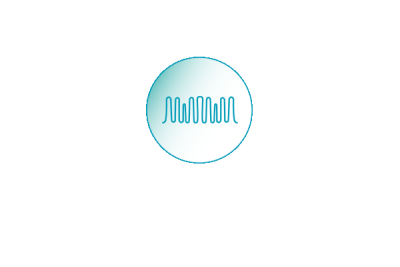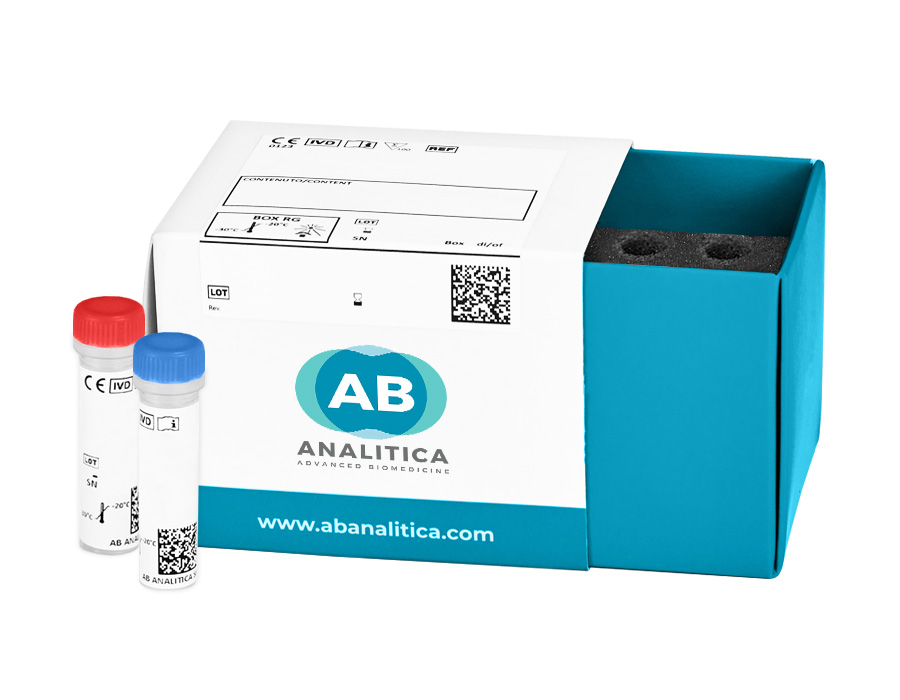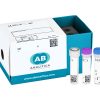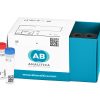Description
The REALQUALITY RS-INV 16 kit is an IVD for detection and quantification of the fusion transcript resulting from the pericentric inversion of chromosome 16, inv(16)(p13;q22). The test is based on amplification of cDNA derived from the fusion transcript CBFβ-MYH11 (fusion of the genes CBFβ in chromosome region 16q22 and MYH11 in chromosome region 16p13) by Real-Time.
Product Characteristics
- The device is developed in accordance with the guidelines of Europe
- Against Cancer and international recommendations
- The assay includes dUTP/UNG system for preventing carry-over contamination and a fluorescence normalizer
- The assay requires only 5 µL of cDNA extracted
- If used in combination with the REALQUALITY RQ INV 16 STANDARD, it allows the quantification of INV 16 transcripts
- The assay shares the same thermal profile of REALQUALITY RS- AML1-ETO e RS-WT1 kits.
- Validated on main Real-Time PCR instruments
Kit content
The kit includes:
- Ready-to-use reagents for Real-Time PCR
- Positive control
- ROX fluorescence normalizer
Further Information
The pericentric inversion of chromosome 16, inv(16)(p13q22), is a rearrangement commonly found (approx. 8-9%) in cases of Acute Myeloid Leukemia (AML). It is often associated with acute myelomonocytic leukemia with abnormal eosinophils (subtype M4Eo). The inversion leads to fusion of the CBFβ gene (Core Binding Protein Factor ß subunit) and the MYH11 gene (Myosin Heavy Chain 11) and formation of different types of CBFβ-MYH11 fusion transcripts (type A to J). Type A, which results from the fusion of the CBFβ gene with exon 12 of MYH11, has been found in 85% of patients positive for inv(16). Statistically, approx. 3.5 out of 100,000 persons per year suffer from AML. Although it occurs in all age groups, frequency of manifestation rises with increasing age. Here, molecular analysis of inv(16) has proved to be very valuable in diagnosis and therapy. This type of rearrangement is usually associated with a positive prognosis due to a favorable response to therapeutic measures that are less toxic than are needed for other types of AML. Patients suffering from this type of AML generally show a fast and complete hematological remission after standard chemotherapy. Detection of this inversion can be performed at the molecular level as follows: total RNA is extracted from clinical samples; the RNA is transcribed into cDNA (reverse transcription); and the regions of interest are amplified from the cDNA. Detection of the translocation provides useful information for diagnosis and prognosis of those types of leukemia, but also provides the means for monitoring the Minimal Residual Disease (MRD).
Ordering Information
| Code | Product | PKG |
|---|---|---|
| RQ-S61-48 | REALQUALITY RS-INV 16 | 48 tests |
| RQ-S61-96 | REALQUALITY RS-INV 16 | 96 tests |









